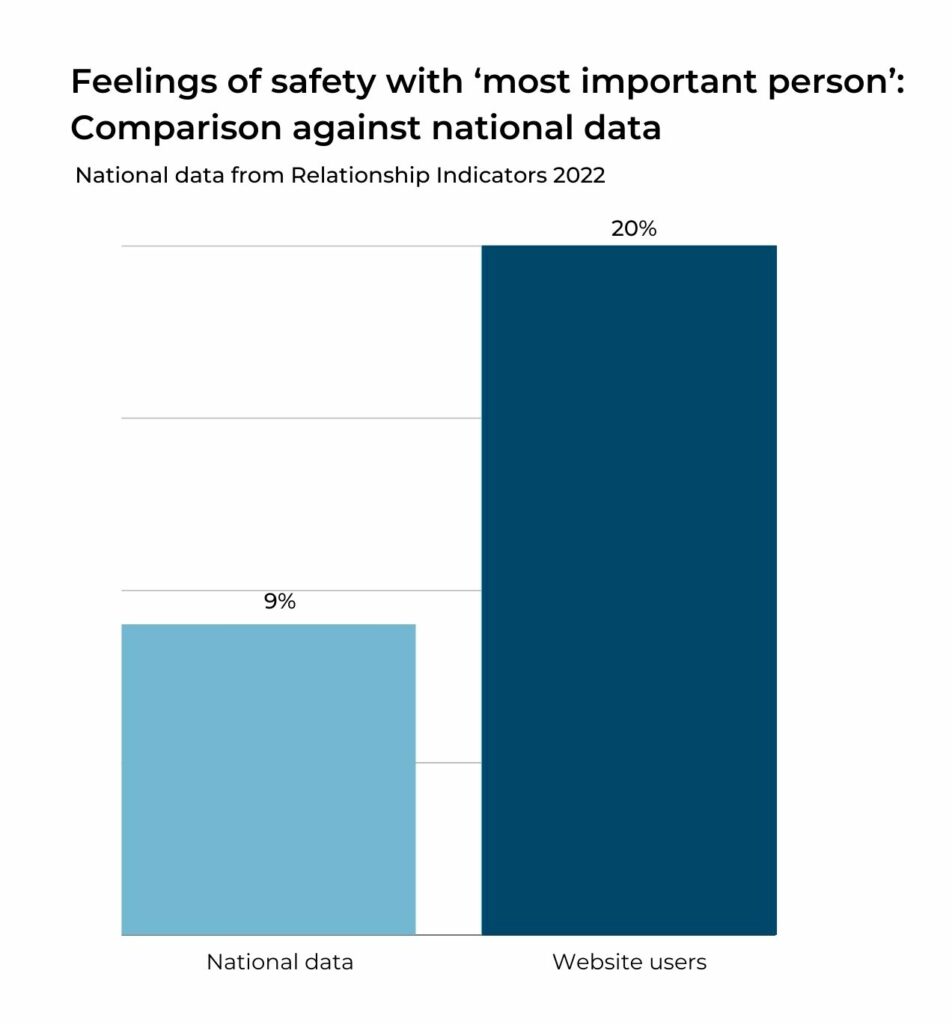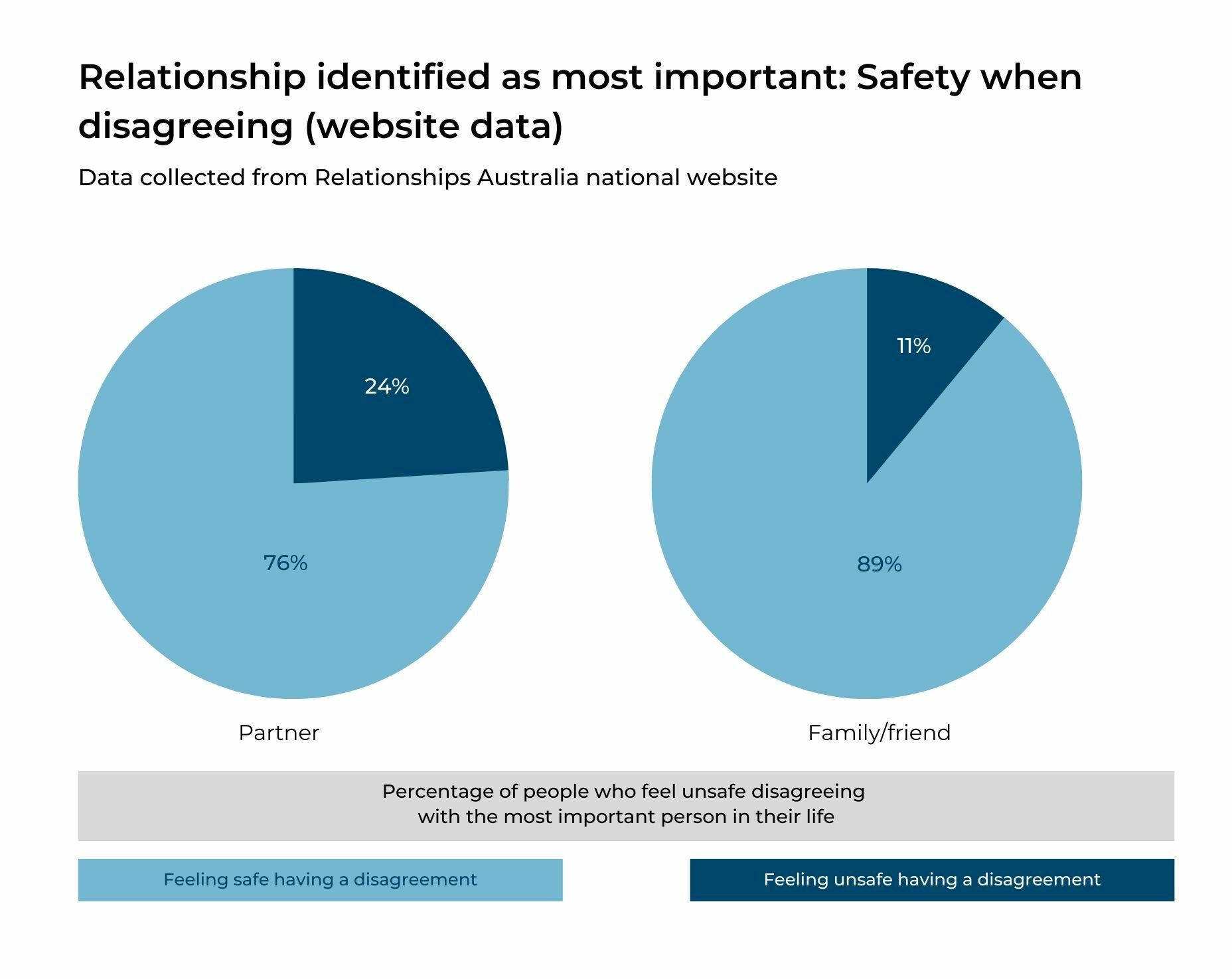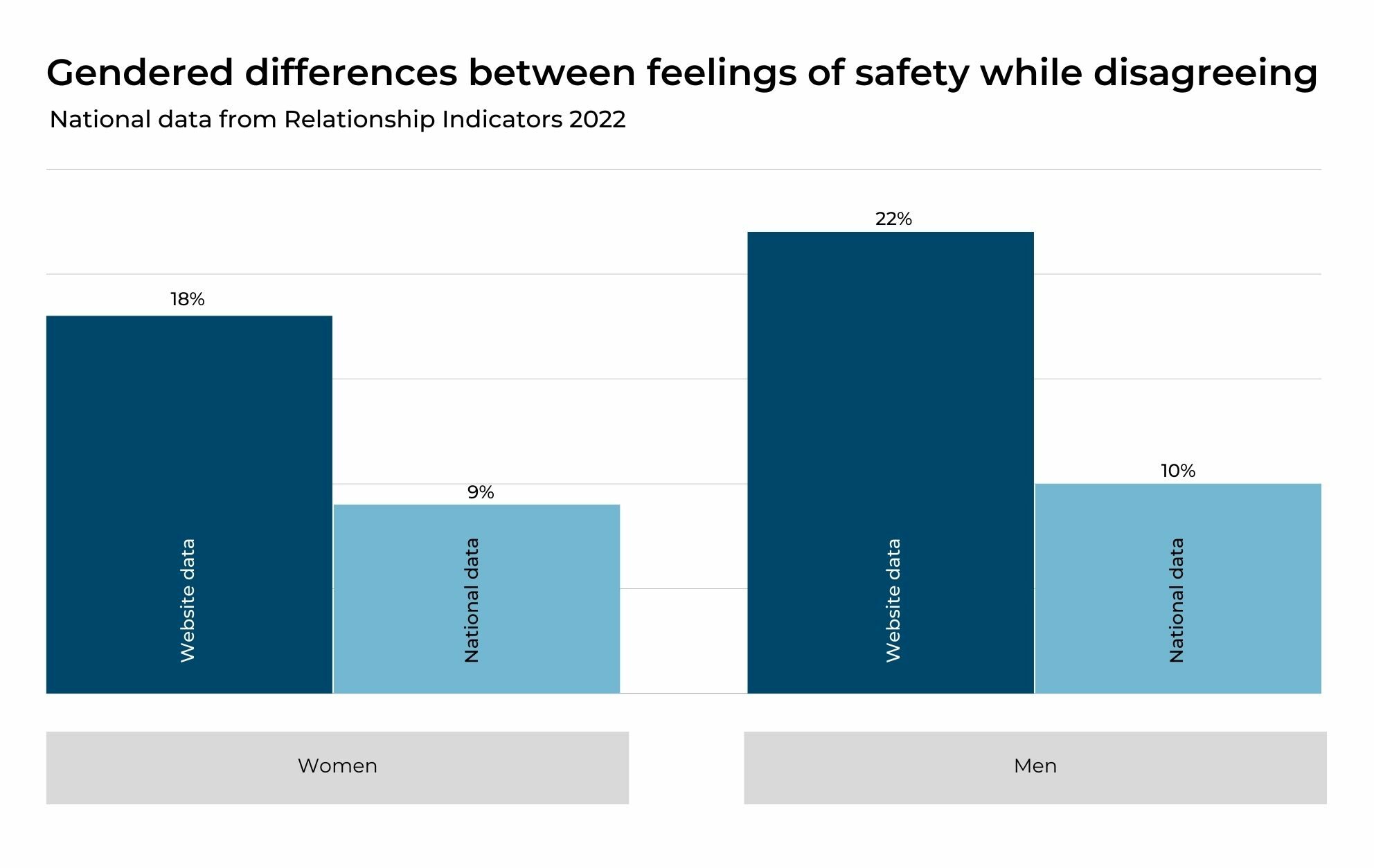Feeling unsafe disagreeing with someone does not always equate to violence; however, it can be indicative of risk factors associated with family and domestic violence and is used as a screening tool by Relationships Australia.
National statistics demonstrate 9% of people in Australia feel unsafe disagreeing with the most important person in their life. Our website users felt unsafe at twice this rate. A concerning 20% stated that they felt unsafe having a disagreement with the most important person in their life. This demonstrates that interpersonal violence should be considered a possible issue for 1 in 5 of our clients.

Among our website users, 24% of people who chose their partner as their most important person said they felt unsafe disagreeing with them – making intimate partner violence a possible issue for 1 in 4 clients. Contrastingly, only 11% of people who chose a family member or friend as their most important relationship said they felt unsafe disagreeing with them.
In the national statistics, there was no discernible difference between the type of relationship considered most important, and feelings of unsafety. In fact, asking about feeling safe while having disagreements is understood as a good measure of safety that is relevant across all kinds of relationships. As such, the difference between levels of safety between partners and family/friends may stem from the imbalances in the relationship concerns presented by people accessing our website.
For example, more couples in conflict are likely to come to our website, while other services which address conflict in family/friend relationships are often directly referred to us. We suggest that the numbers reflect this, as opposed to interpersonal violence being less of an issue outside the partner dynamic.

National data did not show a gendered difference between those who felt unsafe versus those who felt safe disagreeing. However, among our website users, men (22%) were more slightly more likely than women (18%) to say that they felt unsafe disagreeing with their most important person. There were no substantial differences between age groups, suggesting that family and domestic violence is a risk across genders and ages.

Need support?
In an emergency please call 000
For other non-urgent supports:
1800 RESPECT 1800 737 732
Mensline Australia 1300 789 978
Lifeline 131 114
Note on survey sample
This survey had 1124 responses. The sample was collected using the Relationships Australia national website. Participants ranged from under 18 to 75 or more years. 73% of the respondents identified as women, 25% as men and 1% as non-binary.
